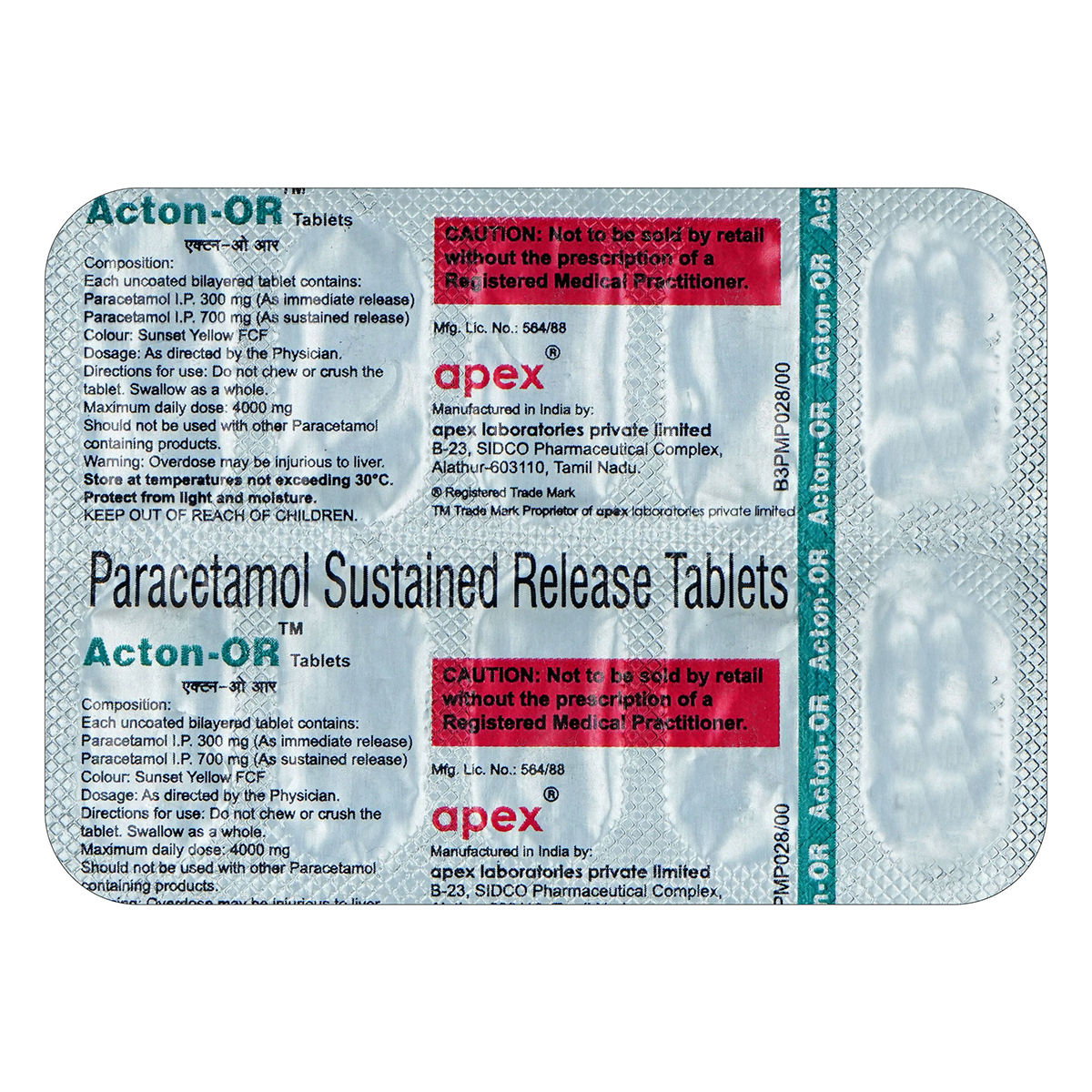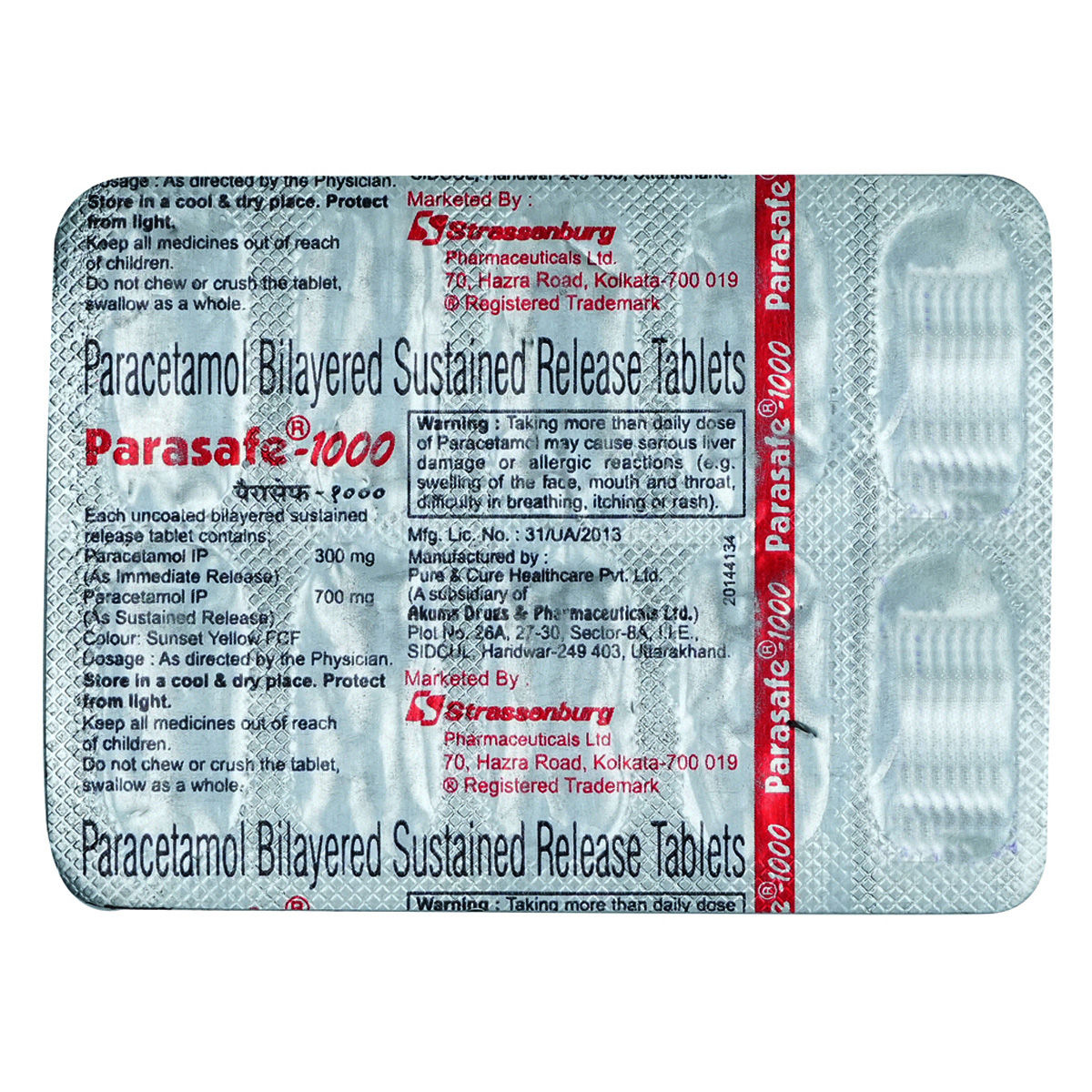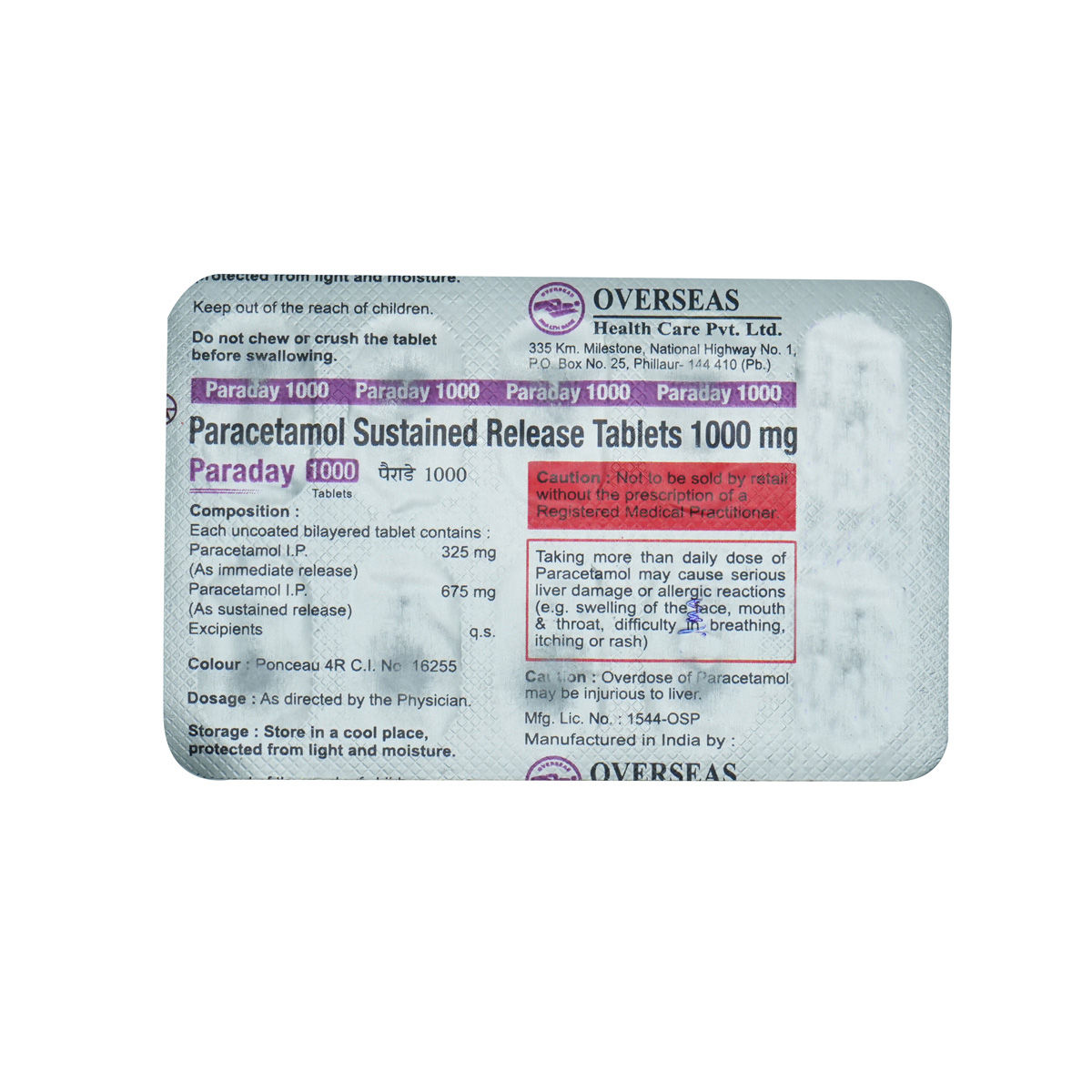Paraup IV Injection
₹130.05*
MRP ₹144.5
10% off
₹122.82*
MRP ₹144.5
15% CB
₹21.68 cashback(15%)
Free Delivery
With Circle membership
(Inclusive of all Taxes)
This offer price is valid on orders above ₹800. Apply coupon PHARMA10/PHARMA18 (excluding restricted items)
Know Your Delivery Time
Provide Delivery Location

Available Offers
 Prescription drug
Prescription drugWhats That

Secure Payment

India's Most Trusted Pharmacy

Genuine Products
Composition :
Manufacturer/Marketer :
Consume Type :
Return Policy :
About Paraup IV Injection
Paraup IV Injection is used to relieve mild to moderate pain and to treat fever. Pain is a symptom triggered by the nervous system, which causes uncomfortable sensations in the body. Fever occurs when the body's temperature goes above the average body temperature (98.6°F or 37°C).
Paraup IV Injection contains 'Paracetamol,' which prevents the formation of chemical messengers called prostaglandins, which cause pain and swelling at the injury sites. This process reduces the mild to moderate pain and inflammation at the injured or damaged site. Paraup IV Injection also affects an area of the brain that regulates body temperature known as the hypothalamic heat-regulating centre. Thus, it reduces fever.
Your doctor will decide the dose and duration of Paraup IV Injection based on the severity of your medical condition. Common side effects of Paraup IV Injection include constipation, nausea, and vomiting. These side effects are not familiar to everyone and vary individually. If you notice any side effects that are not manageable, please consult your doctor.
Please tell your doctor if you are allergic to any of the components of Paraup IV Injection. Let your doctor know if you use any other painkillers before starting this medicine. Inform your doctor if you have liver or kidney diseases, malnutrition, dehydration, and a history of alcoholism before starting Paraup IV Injection. It is essential to let your doctor know if you are pregnant, planning to conceive or are a breastfeeding mother. It is not recommended to consume alcohol while using Paraup IV Injection.
Uses of Paraup IV Injection
Directions for Use
Medicinal Benefits
Paraup IV Injection contains 'Paracetamol,' which is an analgesic (relieves pain) and an antipyretic (reduces fever). It prevents the formation of chemical messengers called prostaglandins, which cause pain and swelling at the injury sites. This process reduces the mild to moderate pain and inflammation at the injured or damaged site. Paraup IV Injection also affects an area of the brain that regulates body temperature known as the hypothalamic heat-regulating centre. Thus, it reduces fever.
How Paraup IV Injection Works
Storage
Side Effects of Paraup IV Injection
- Constipation
- Nausea
- Vomiting
What if I have taken an overdose of Paraup IV Injection
Drug Warnings
Let your doctor know if you use any prescription and non-prescription medications, including other vitamins, before starting Paraup IV Injection. Notify your doctor if you have any intolerance or allergy to any of the components in Paraup IV Injection. Inform your doctor if you have liver or kidney diseases, malnutrition, dehydration, and a history of alcoholism before starting Paraup IV Injection. Please consult your doctor know if you are pregnant, planning to conceive or are a breastfeeding mother. Do not consume alcohol while being treated with Paraup IV Injection.
Diet & Lifestyle Advise
- Performing yoga may help in improving overall flexibility and pain management.
- Maintain a healthy weight by performing regular low-strain exercises and eating healthy food.
- Get adequate sleep as resting the muscles can help in reducing inflammation and swelling.
- Follow heat or cold therapy; apply a cold or hot compress on the joints for 15-20minutes regularly.
- Acupuncture, massage, and physical therapy may also be helpful.
- Eat food rich in antioxidants such as berries, spinach, kidney beans, dark chocolate, etc.
- Foods containing flavonoids help in reducing inflammation. These include soy, berries, broccoli, grapes, and green tea.
- Avoid smoking and alcohol consumption.
Habit Forming
Therapeutic Class
Paraup IV Injection Substitute

Pyrigesic 1000 mg Tablet 10's
₹3.60per tabletActon-OR Tablet 10's
₹6.05per tabletXykaa BD 1000 Tablet 10's
by AYUR
₹6.84per tabletParasafe 1000 Tablet 10's
₹5.40per tabletNexpar LA Tablet 15's
₹6.72per tablet
Product Substitutes
Alcohol
Unsafe
You are recommended to avoid alcohol consumption while taking Paraup IV Injection. Alcohol intake, along with Paraup IV Injection may cause increased liver damage.
Pregnancy
Caution
Please consult your doctor before taking Paraup IV Injection if you are a pregnant.
Breast Feeding
Caution
Paraup IV Injection should be used during breastfeeding only when suggested by a doctor.
Driving
Safe
Paraup IV Injection does not usually affect your ability to drive.
Liver
Caution
Please consult your doctor since Paraup IV Injection should be used with caution in patients with liver impairment/liver disease.
Kidney
Caution
Please consult your doctor since Paraup IV Injection should be used with caution in patients with kidney impairment/kidney disease.
Children
Caution
Paraup IV Injection should be given to children only when prescribed by a doctor
FAQs
Country of origin
Disclaimer
Author Details
We provide you with authentic, trustworthy and relevant information






















